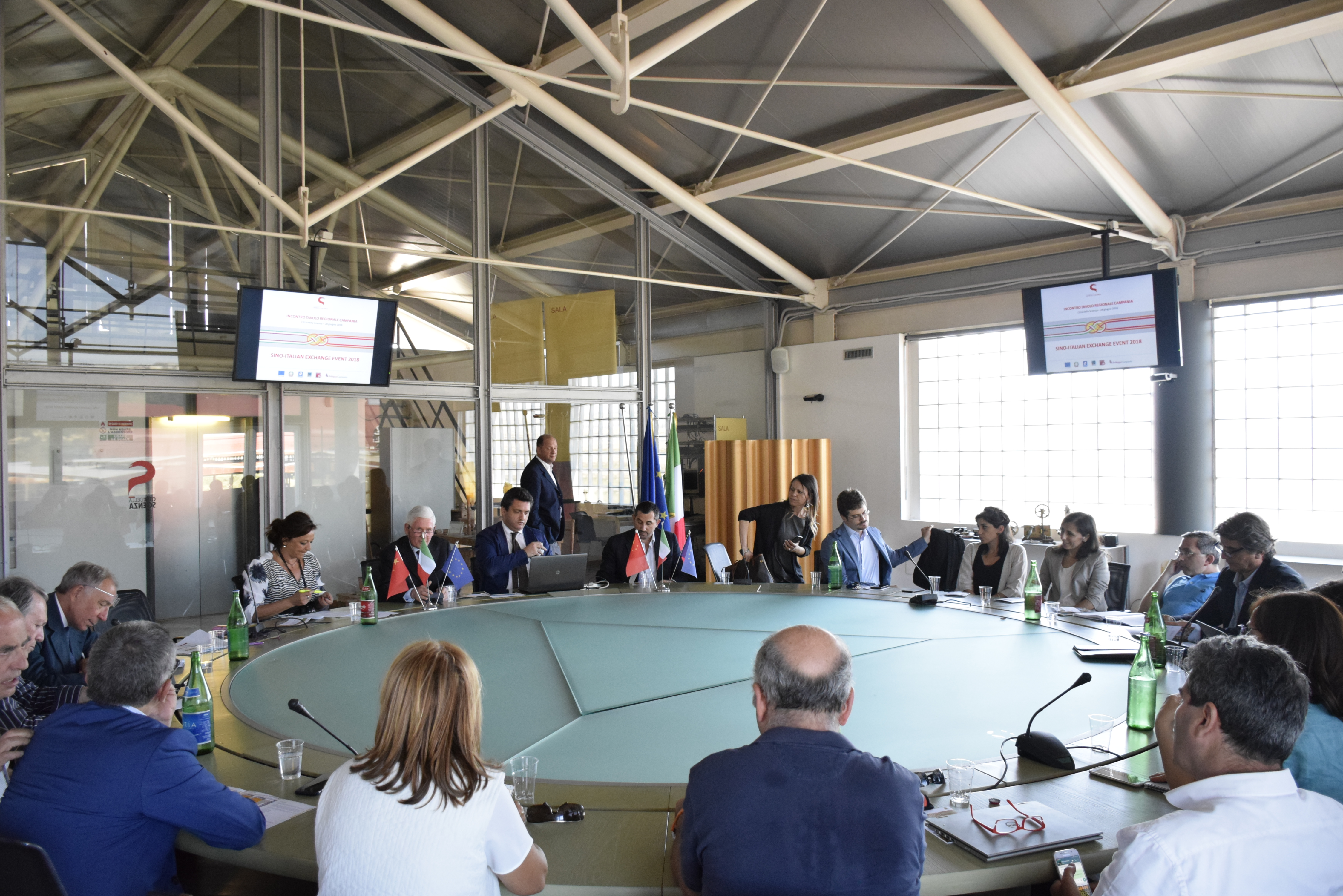We need real ideas, content and proposals on which common projects can be built. “The collaboration between Italy and China in scientific research and the technological industry is the most effective way to build closer cooperation between the two countries on all other fronts, starting with the cultural one. This is why we have a great responsibility” Valeria Fascione, Regional Minister for Internationalization, Start-up and Innovation of the Campania Region, addresses the main actors of the regional “knowledge economy” at the meeting held on Thursday 28 June in Città della Scienza for the preparation of the Sino-Italian Exchange Event (SIEE).
Now in its 12th edition, the SIEE is a multi-year program of scientific and technological cooperation with China and, in particular, with the Beijing Association for Science and Technology (BAST) and the Beijing Municipality. Thanks to the achieved results, in 2013 on the basis of an Inter-ministerial Agreement (approved by the Ministry of Education, University and Research, the Ministry of Economic Development, the Ministry of Foreign Affairs and International Cooperation, the ICE-Agency for the Abroad Promotion and the Internationalization of Italian Companies, the Agency for Digital Italy and Città della Scienza), the Italian government has decided, with the back to back formula, to coordinate the two events, the China-Italy Innovation Forum and the Sino-Italian Exchange Event, entrusting the management of the unified program to Città della Scienza in Naples. This lays out the foundations for the Italy-China Innovation Week, the national platform of cooperation in S&T towards China, which establishes itself for its ability to realize results and strengthen cooperation between the two countries.
“It is” – explains Giuseppe Russo, Secretary General of Città della Scienza – “the most important European program of internationalization with China. Born in 2007, over the years it has grown to become a significant reference point for the sector due to its ability to intercept the real demands of the reference market. For this reason, I invite you to make contributions to improve the quality of the emerging proposals so as to bring the innovative technologies of the regional system to a higher level of cooperation with China”.
Scheduled for 22 October in Naples, the SIEE will open the Italy-China Science, Technology and Innovation Week that will take place from 22 to 25 October in Naples, Rome and Cagliari. The SIEE, promoted by the Campania Region and the Beijing Municipality, will be followed by the Italy-China Innovation Forum (CIIF), now in its 9th edition and promoted by the Italian Ministry of Education, University and Research and by the Ministry of Science and Technology of the People’s Republic of China; and then by two other territorial events in Rome and Cagliari respectively on 24 and 25 October.
The round-tables, seminars and workshops will be focused on topics related to the National Smart Specialization Plan, that are; Sustainable Industry, Energy and Environment, Health, Nutrition, Quality of Life, Smart Communities and Smart Mobility Systems, Tourism, Cultural Heritage and Creative Industries, Aerospace and Defence. Once the themes were defined, proposals were collected by universities, public-private institutions, spin-offs and research institutions, including Bio.cam Scarl, Campania Bioscience, various CNR (National Research Council) institutes such as the Biomolecular Chemistry Institute, the Institute for Polymers Composites and Biomaterials (IPCB), the Institute for Electromagnetic Sensing of the Environment (IREA), the Institute of Applied Sciences and Intelligent Systems (ISASI), the Aerospace District of Campania (DAC), High Technology Transport and Logistics District (DATTILO), Marea Scarl, the Most, the Ritam Consortium, the District for the Renewable Energies “Smart Power System”, Sviluppo Campania, the “Anton Dohrn” Zoological Station, spin offs such as Top-in, and the universities Federico II, Vanvitelli, “Parthenope” and L’Orientale.
“A particular commitment”, the Regional Minister Fascione says “will be addressed towards startups. This is the third year in which we are planning for a roadshow with mature startups, with a well-established structure in order to be attractive for the Chinese market”.
The start-ups will have the opportunity to meet with Chinese investors in the Italy-China Best Start-up Showcase. Although still preliminary, there is already a good amount of feedback from the regional innovation world. Also from those who have already had the opportunity to participate and reap the benefits from the collaboration program. From this point of view, the testimony of Marco Borra, in charge of the International Cooperation and Strategic Partnership of the Zoological Station Anton Dohrn, is particularly significant: “These actions bear fruit, in fact after two missions in China, one of our researchers became a partner of a Chinese marine station. China is investing a lot on shipping, and collaborating with them allows us to access incredible ecosystems”.
Of the same type is the experience of Luigi Ambrosio, director of the Institute for Polymers Composites and Biomaterials (IPCB) of the CNR of Naples, who recalls how this collaboration with the Italian Ministry of Foreign Affairs and the Ministry of Science and Technology of PRC has resulted in the realisation of not only individual research projects, but also technology transfer initiatives. “Our researchers”– says Ambrosio – “will work at the Shanghai Technology Center”.
On the increasingly close academic relations between Campania and Beijing, Massimiliano Campi, delegate of Federico II for relations with China, significantly highlights how in the last three years the Federico II university has become the fourth Italian university in terms of agreements with China and the seventh one in terms of joint scientific publications.

 Italiano
Italiano English
English